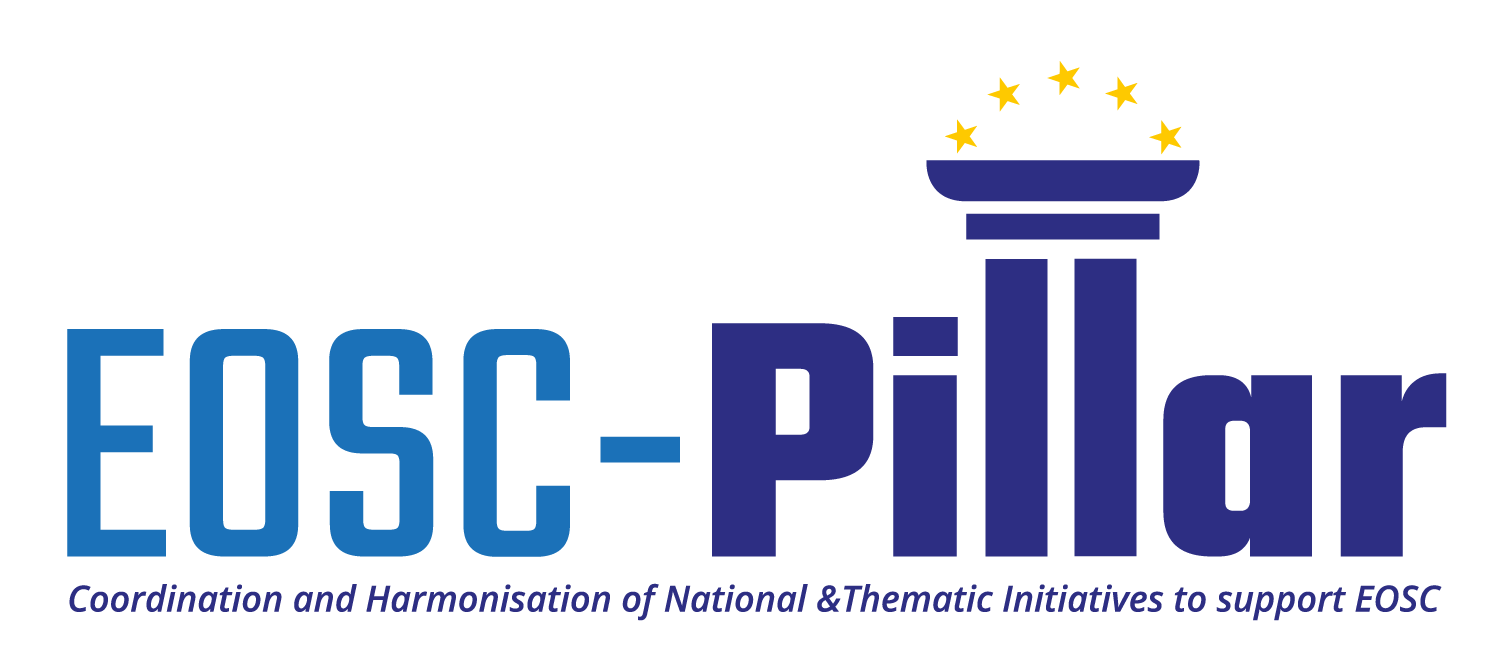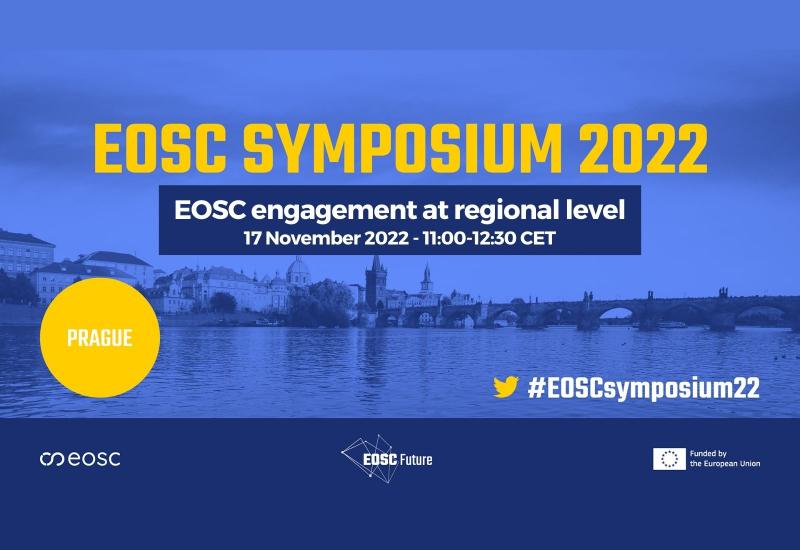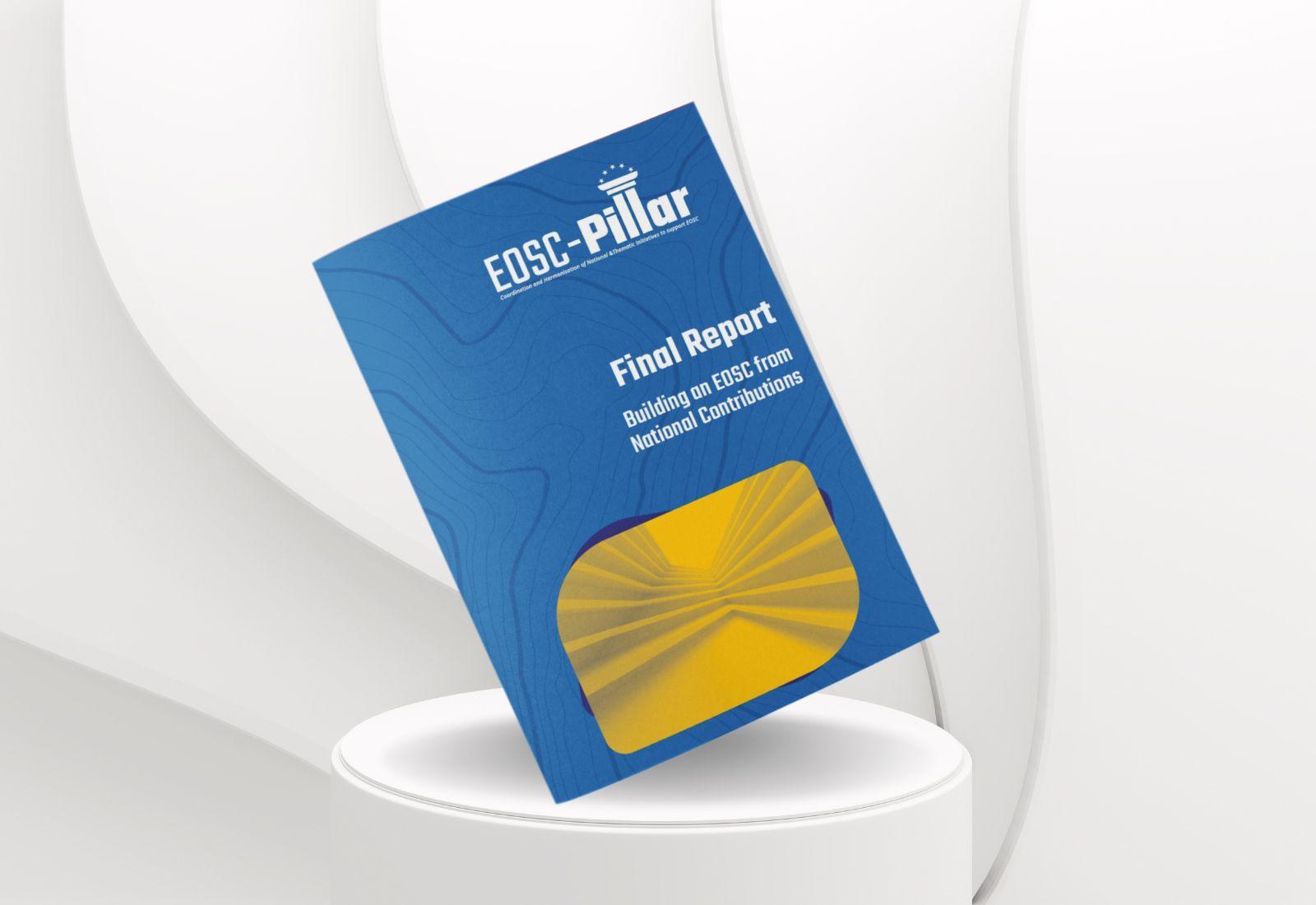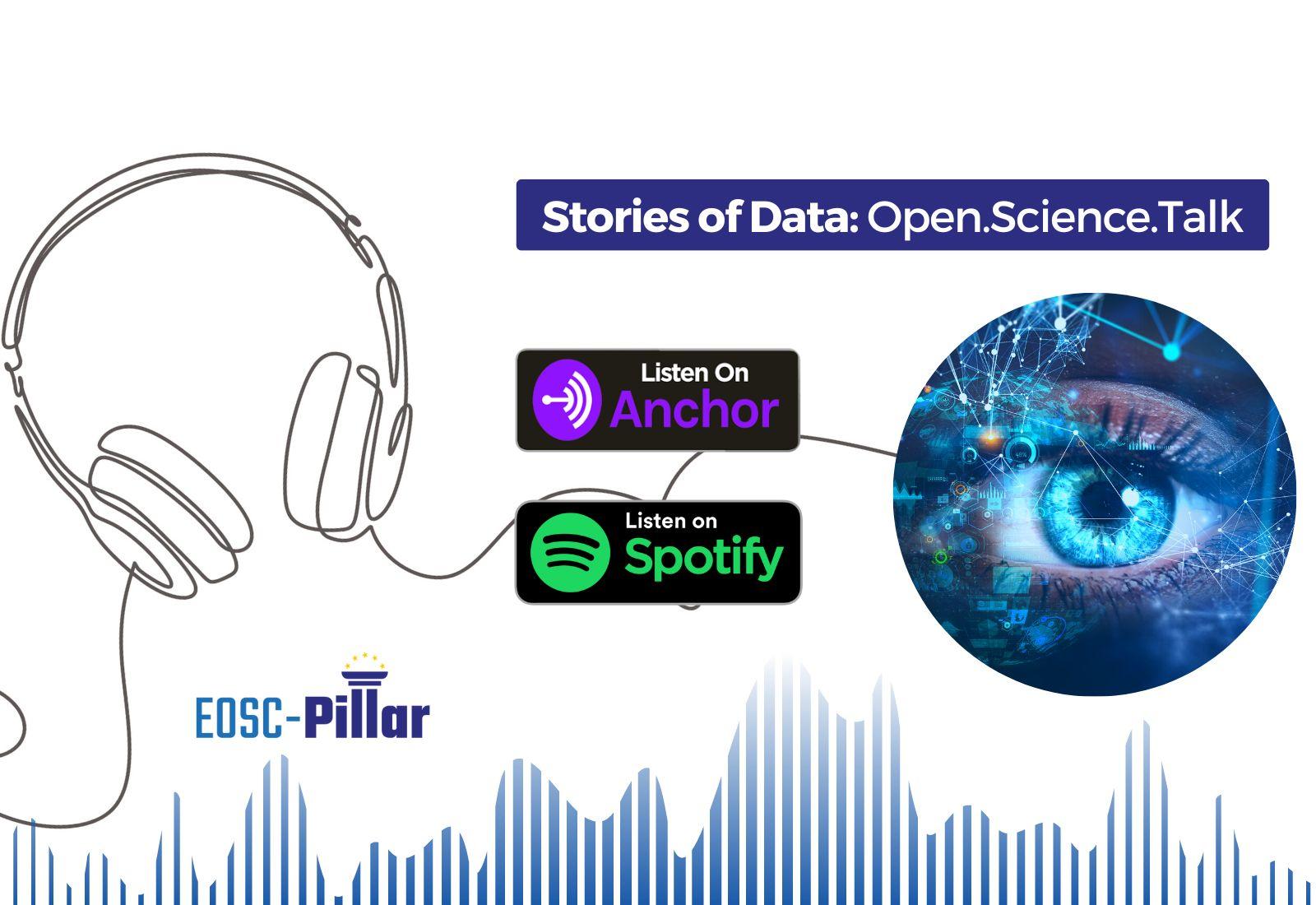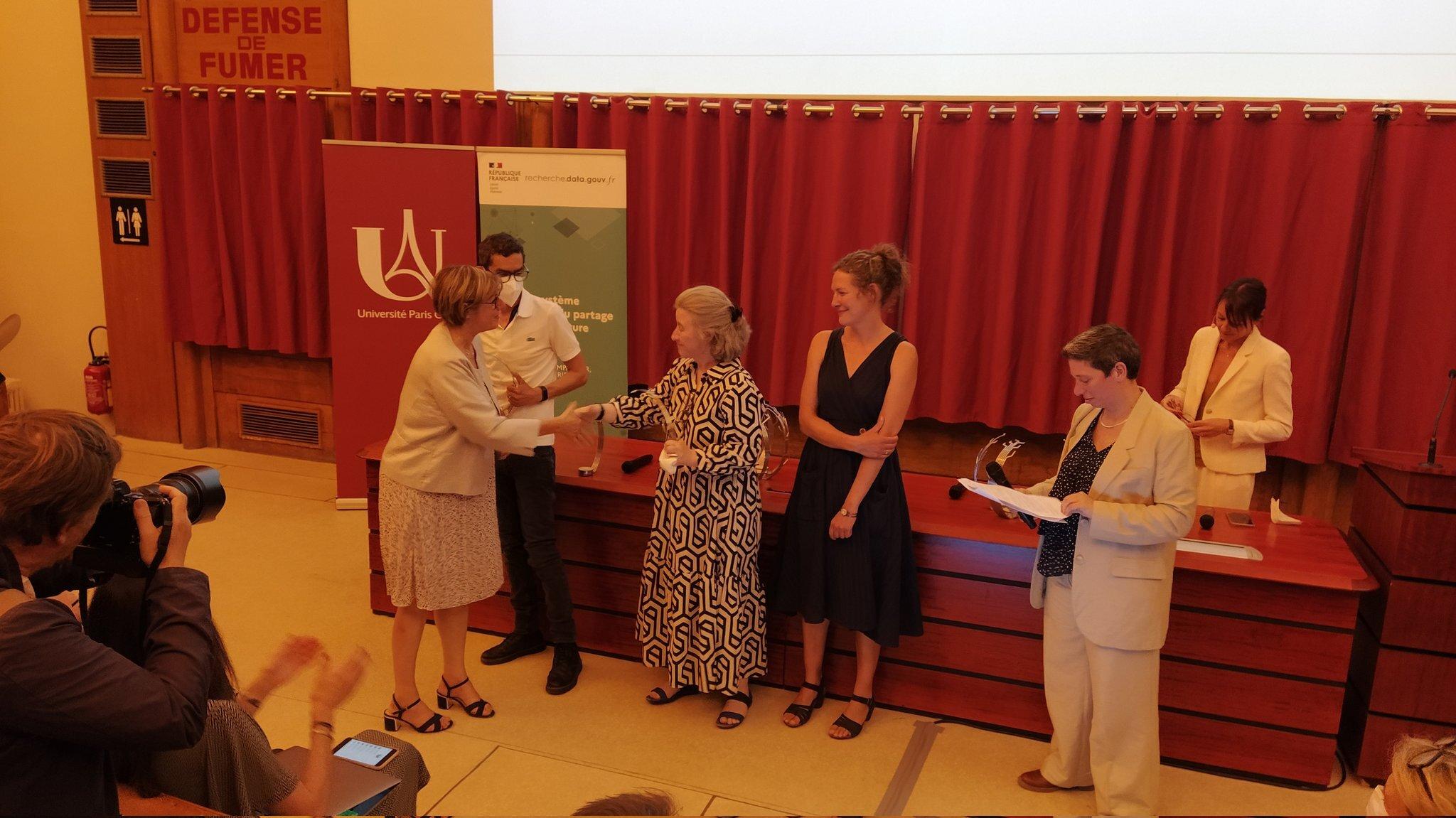
Illustrating the benefits of EOSC for research communities in Germany
March
03,
2022
News
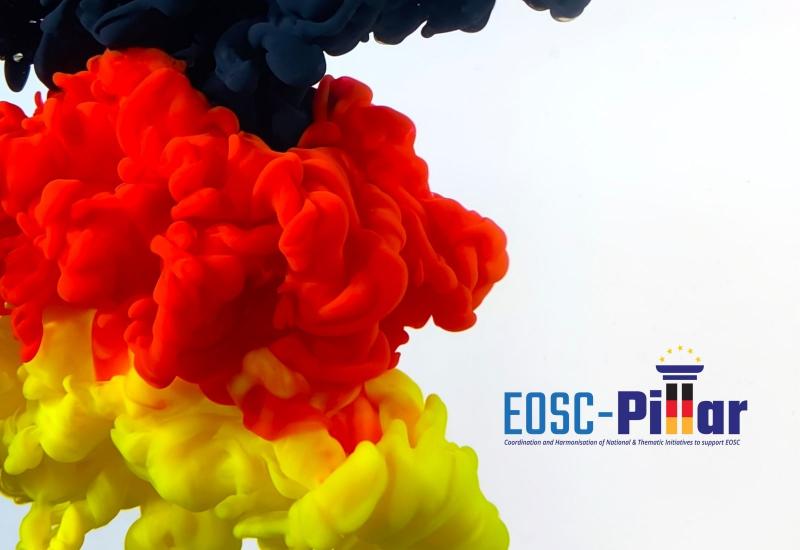
The latest virtual conference organised by EOSC-Pillar, "Germany and EOSC for Researchers", was attended by 140 people on 23 February 2022 and also featured a discussion with a panel of experts. This well-received event highlighted the relationship between EOSC and (National Research Data Infrastructure) NFDI.
A brief introduction on the role and position of NFDI by Sophie Kraft of the NFDI directorate was followed by presentations representing two communities of the German research landscape. Christoph Eberl of the University of Freiburg pointed at the data integration and sharing efforts of the materials science community and the need for a cultural change. Kay Graf of the Friedrich-Alexander-Universität Erlangen-Nürnberg explained how services of the ESCAPE cluster that are built on the EOSC core services (implemented by EOSC-Future) help to make scientific results accessible and enable interdisciplinary research.
In the second part of the event, beautiful examples of live services came on stage. Firstly, Rebecca Reichenbach of the Fraunhofer IWM demonstrated how and what data services can be found in the EOSC Portal. Marco Kulüke of the German Climate Computing Center, showed how climatology research uses services provided by different EOSC partners and links these in a unified workflow (check out the dedicated EOSC-Pillar use case). Representing the Biology community, Anton Güntsch of the Freie Universität Berlin, introduced the Global Genome Biodiversity Network, a world wide used service pre-dating EOSC. It showed that standards, to ensure interoperability, are paramount when publishing scientific results. The resources needed to compute and analyse data are offered by the Container and GPU As A Service (CGAAS) of the Institut Pluridisciplinaire Hubert Curien in Strasbourg. In his presentation Jerome Pansanel of the same institute, showed the steps taken to integrate the service in the EOSC ecosystem.
The event ended with a panel discussion which panellist Marie Czuray of University of Vienna kicked off with a pitch on the EOSC-Pillar Ambassadors Programme that offers support in promoting EOSC. Subsequently she and the panellists Raphael Ritz of the Max Planck Computing and Data Facility, Birgit Gemeinholzer of the University of Kassel and Achim Streit of the Karlsruhe Institute of Technology shed their views on engagement of German researchers with EOSC and the interaction with and the role of NFDI and EOSC. The panel acknowledged the importance of both initiatives and suggested finding apt communication methods to upkeep the information exchange and to learn from each other in order to prevent disparate developments. Further is was considered important that only trusted data repositories and services will be offered and it is necessary to have examples of attractive data services from both NFDI and EOSC, even if these are slightly competitive.
The video recordings and copies of the presentations can be found in the program of the workshop at this link.
Q&A
- How can our research data become interoperable with EOSC?
- "There are several services available, e.g. have a look at https://marketplace.eosc-portal.eu/services/b2share."
- “The [ESCAPE] data actually is distributed, one e.g. is the virtual observatory - Zenodo is not ESCAPEs primary data service, but rather for complete workflows - many of the entries also have (test) data included."
- “If you are interested to link it into EOSC, there are several ways: directly in the EOSC Portal, see https://eosc-portal.eu/for-providers”.
- What is the best metadata standard to describe software? Or what are equally suited options?
- "[..] not sure, that such a standard specifically for software already exists. I would recommend to start looking at the Research Data Alliance or ask de-RSE".
- “Have a look at CodeMeta https://codemeta.github.io we are basing our metadata on this scheme.”.
- In page 5 of the presentation, Kay Graf talked about “providing VO services”, what do you mean about that? Ie., the data services (SCS,TAP,etc), or the software to publish VO services (SaaS)?
- "The services themselves are linked via b2find. Also, we discuss onboarding the software behind the services."
- In Kay Graf's presentation, you said “we discuss about onboarding the software behind the services.” Where do you discuss that? And how can I learn and use the services you put up (such as B2Find)?
- "There, I would very much like to link you up with ESCAPE WP4, the task there is to bring VO service to EOSC - https://projectescape.eu/services/escape-virtual-observatory"
- There are currently only SCCS systems (gitlab e.g.) but no agreed way to assign Identifiers. One can always use Zenodo to get a DOI, but no general Metadata schema is worked out (afaik)
- "The ESCAPE ansatz is that stable versions are published to Zenodo (with a crosswalk from CodeMeta meta data to Zenodo MetaData). However, Software Heritage is also archiving all commits and provides a reliable identifier to every line of code (see SWHID - https://docs.softwareheritage.org/devel/swh-model/persistent-identifiers... )"
- "For software, you have take a look at the outcome of the following WG: https://www.rd-alliance.org/groups/rdaforce11-software-source-code-ident..."
- "Thanks - indeed as you might have seen from answers, we are following those propositions. Which is also picked up in the EOSC working group (finished) and Task force (currently) on Software."
- Against the background [of the] Green Deal, I wonder where to find biodiversity/ecological data in EOSC? Subsumed in existing categories? Is there a need for a community to approach EOSC to have such a biodiversity?
- "Certainly the development of such a Green Deal category would be of interest but people need to confine to whatever they can.”
- Again back to data as "private good" in general: Actual RD which is "live" available on any cloud platform/portal... what to do if this data collides with publishers interests when meant to be published? e.g: put embargo on data in the cloud until paper is published?
- "I can only answer for my community: here embargo periods are very common - allowing the exploitation first by the RIs or principal investigators."
- What does EOSC offer that NFDI doesn’t already offer national researchers - what is the added value in your opinion?
- "I think that message should be passed on in communication: an extra European layer for interoperability and frameworks that can filter down to national level."



